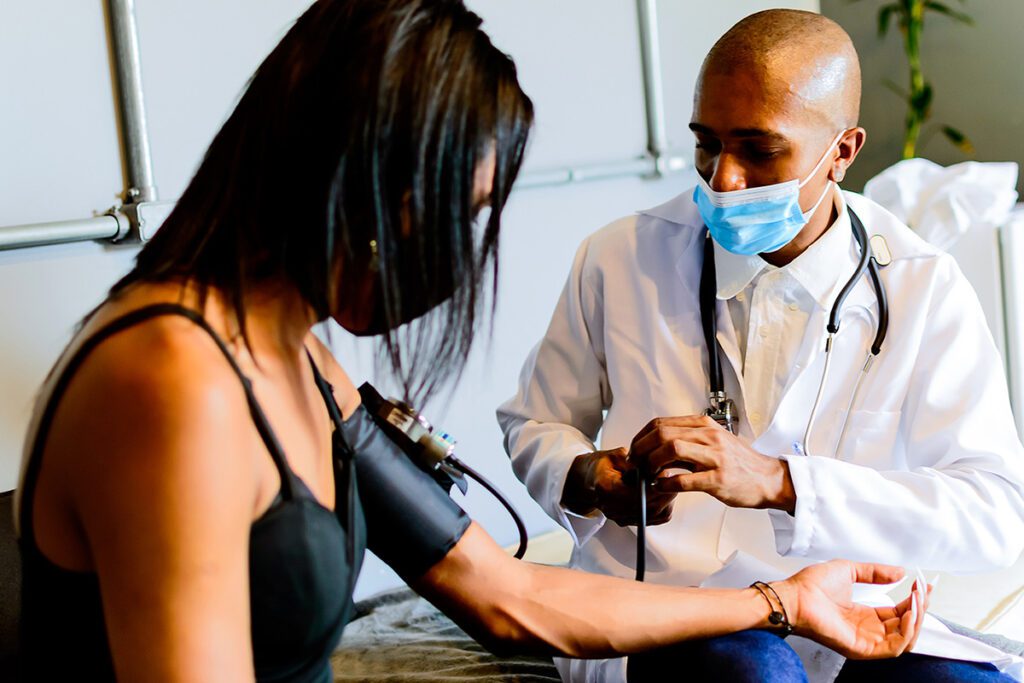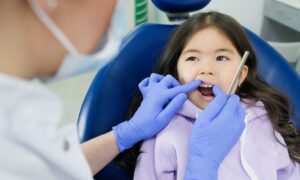Closing Critical Gaps in LGBTQIA+ Health

In the United States and around the globe, populations that are marginalized in society experience health problems at higher rates than those who enjoy greater privilege. These inequities are due to factors such as discrimination-related stress, stigma, segregation, access issues, medical mistrust, and other social determinants of health.
Because of all of these factors, lesbian, gay, bisexual, transgender, queer, and intersex (LGBTQIA+) people are at higher risk for a variety of chronic illnesses and behavioral health issues than the general population.
It’s important for everyone in the health care ecosystem to understand these inequities and their causes. It’s also important for friends, family members, coworkers, and employers of LGBTQIA+ people to know about these issues so they can be supportive allies.
Higher Incidence of Chronic Health Conditions
Here are some examples of health inequities documented among LGBTQIA+ people.
Lesbian and bisexual (bi) women experience higher rates of asthma, urinary tract infections, some cancers, cardiovascular diseases, hepatitis B and C, obesity, and arthritis than straight women.
Gay and bi men report higher rates of cancer (with lower survival rates) and cardiovascular disease than heterosexual men.
Black men who have sex with men (MSM) have been more affected by HIV than any other group in the U.S.
Compared to cisgender people, transgender (trans) people have higher rates of cardiovascular, neurologic, and endocrine conditions, chronic pulmonary disease, anemia, liver disease, renal failure, rheumatoid arthritis, cancer, HIV/AIDS, and peptic ulcer disease.
In a 2018 survey, intersex people reported high rates of depression, anxiety, arthritis, and hypertension.
Behavioral health conditions are also much more common among LGBTQIA+ people.
While LGBTQIA+ people of all ages are at heightened risk for a variety of poor physical and behavioral health outcomes, LGBTQIA+ older adults are often the most vulnerable.
What accounts for these health gaps? We can find some answers in the social determinants of health that LGBTQIA+ people face.
Social Determinants of Health
Social stigma, discrimination, and denial of civil and human rights take a heavy toll on LGBTQIA+ people and contribute to their higher rates of health problems in many complex ways.
The families of LGBTQIA+ people may reject them, their identity, and/or their partners, isolating them from support, which further contributes to higher rates of poor behavioral health as well as homelessness and all its negative health consequences.
In the U.S. in 2021, 17 percent of LGBTQIA+ people were living in poverty, compared to 12 percent of cisgender heterosexual people. Among trans people, the poverty rate was 21 percent.
LGBTQIA+ people who are also BIPOC (Black, indigenous, and other people of color) are even more likely to live in poverty.
LGBTQIA+ people also frequently face the threat of murder, violence, and victimization, and these incidents are increasing. This violence not only frequently sends its victims to the emergency room; it also provokes a lot of anxiety.
All these stressors may contribute to higher rates of substance use.
Interactions with the Health Care System
LGBTQIA+ people report having negative experiences seeking medical care. This ranges from disrespectful treatment to lack of awareness of their unique health needs. These experiences may lead some LGBTQIA+ people to conceal their sexual orientation or gender identity from providers or avoid seeking care completely. Thus, they may not get important health screenings that could detect health problems earlier, when they’re more treatable.
Certain health screenings may be appropriate for transgender and gender-diverse individuals based on their anatomy (e.g., mammograms, prostate cancer screenings). But undergoing these screenings may trigger gender dysphoria for someone uncomfortable with these reminders of their assigned gender. And some health care professionals don’t understand these patients’ health care needs, which can make such screenings even more embarrassing and distressing.
Likewise, intersex people report mistrust in the health care system, often because they’ve experienced coercion to undergo gender reassignment surgeries.
More training about LGBTQIA+ health in medical schools could make a big difference. Historically, this subject has received very limited attention in the health care curriculum, leaving providers ill-informed and creating barriers to care. But some progress is being made.
Continuing to Challenge Stigma
Discrimination directly and indirectly causes higher rates of chronic health conditions in the LGBTQIA+ population. And LGBTQIA+ people are currently experiencing a massive increase in hate speech and violence in the U.S., directed not only at LGBTQIA+ individuals but also health care facilities, educational institutions, and government offices perceived to be supportive of this population. This growing climate of hostility is only likely to worsen LGBTQIA+ health inequities.
We All Have a Role to Play in Improving the Health of LGBTQIA+ People
Like other marginalized populations, LGBTQIA+ people face significant health inequities. And that’s not okay. Here’s what you can do:
If you’re LGBTQIA+ — Please prioritize your physical and emotional health! Take care of yourselves and each other. Get the screenings you need to catch health problems early. Seek out supportive, knowledgeable health professionals, and cultivate relationships of mutual respect.
If you’re a health professional — Please try to empathize with your LGBTQIA+ patients. Educate yourself about their unique needs. And listen to them; they have a lot to teach you!
If you want to be a good ally — Stand up for your LGBTQIA+ loved ones. Encourage them to stay healthy and get help for their health issues. And work to overcome homophobia, misogyny, racism, and conscious/unconscious bias wherever you see it.
We all deserve the same opportunities to enjoy good health. That’s going to take a lot of work. Let’s do that work together.





